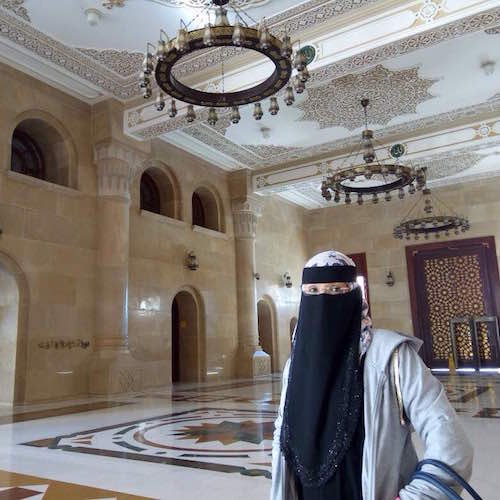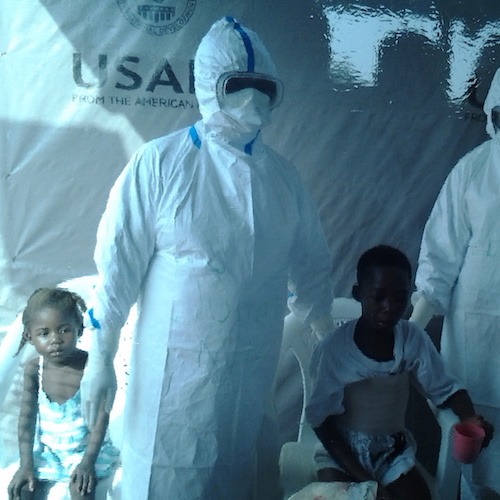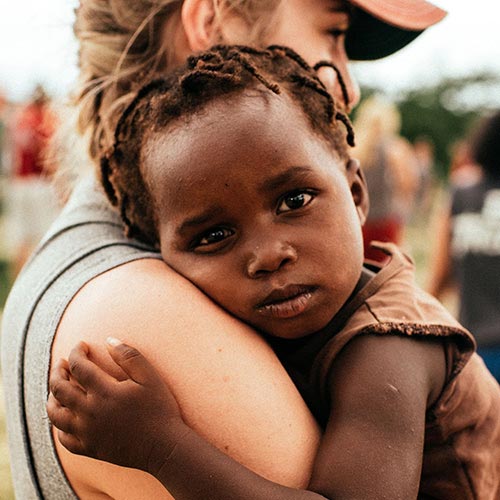The Misperception Of The ‘Third Party Contractor’
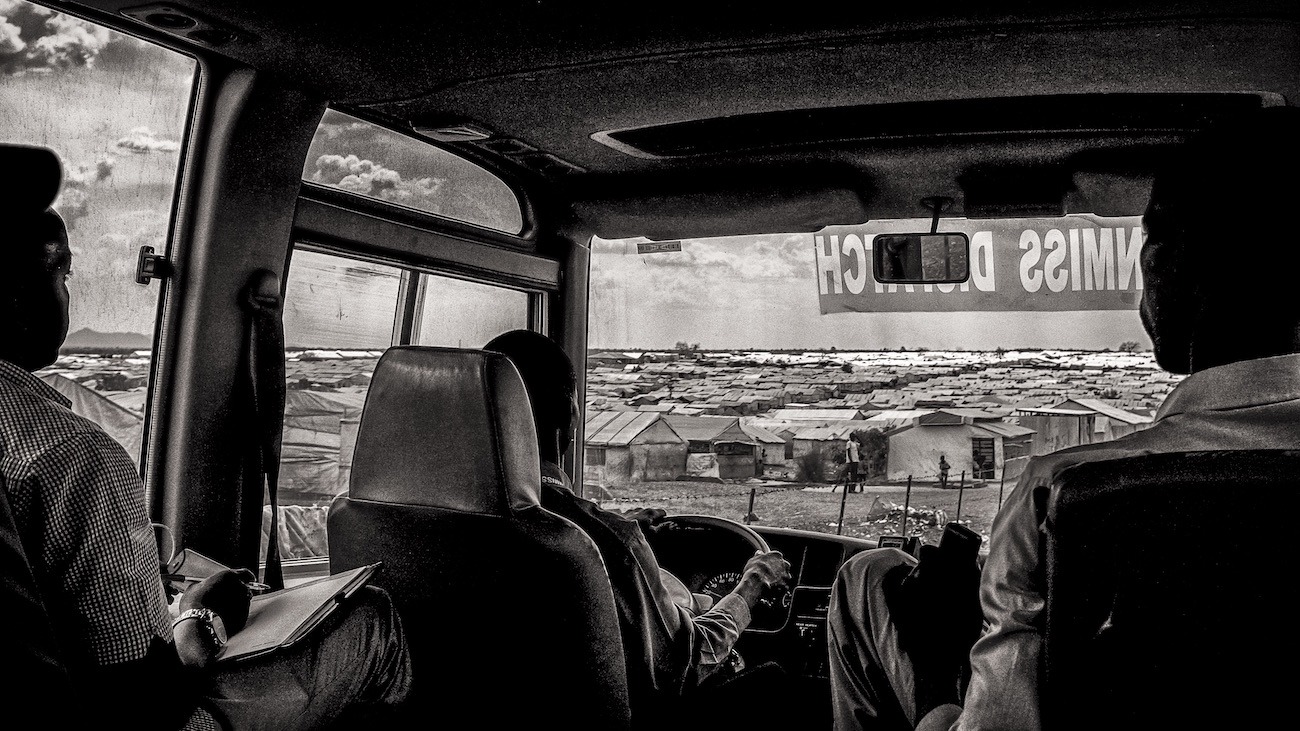
The view over a camp for internally displaced people (IDPs) at a UN House outside Juba, South Sudan. CTG is proud to work alongside the UN and governments in the management of camps like this, providing hope and shelter to thousands of people. Photo by Iain Statham.
Am I a humanitarian?
I would be inclined to say yes. Even though I run a business and am from the private sector. So why do I feel that I might be able to claim humanitarian status?
Well, back in 2007 we started supporting the implementation of important humanitarian projects in Afghanistan, programmes which are funded by international government donors. Our first project saw CTG hiring engineers to build schools and clinics in areas of Afghanistan which the United Nations staff members were not permitted to travel to. This meant these remote provinces in Afghanistan would receive much-needed education.
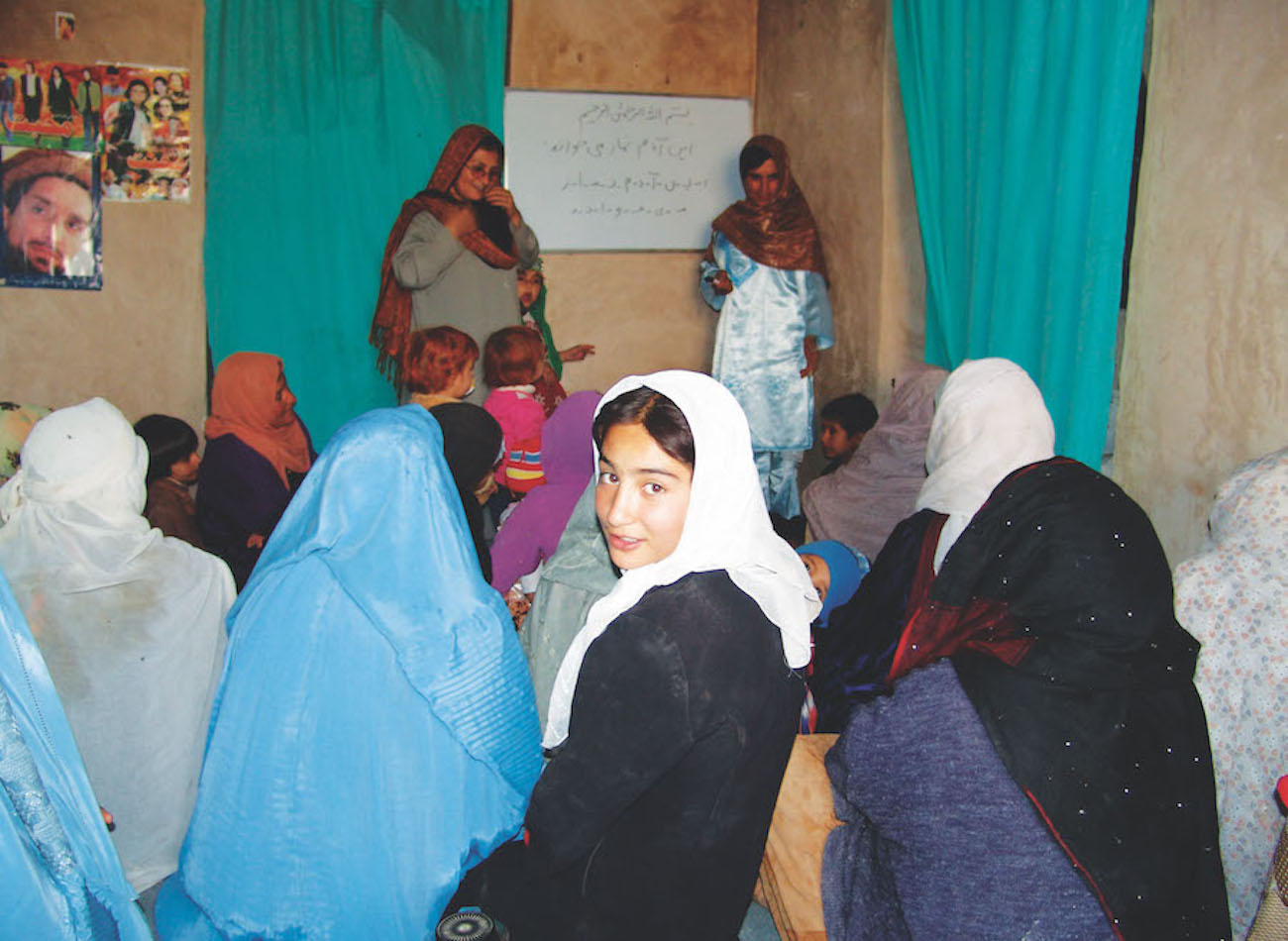
CTG staff ran literacy and health campaigns for women in the remote rural area of Badghis, Afghanistan, where very few humanitarian organisations operate
CTG has run literacy programmes in Badghis (a province of Afghanistan where 98% of the rural female population were believed to be illiterate in 2007), creating women-run radio programming which raised the level of literacy and health awareness among women using radio broadcasts. During presidential and provincial elections, we staffed election complaints centres for all 34 provinces of Afghanistan, which helped to ensure a fair and equal right to vote. These are just a few of the projects we have been instrumental in implementing in Afghanistan.
The concept of the ‘third party contractor’ is often met with disdain by humanitarians working in the field. But you have asked us to help and we are on the ground with you.
CTG has also helped to ensure food reached millions of people in Sudan, Sierra Leone (in quarantined areas during and post the Ebola crisis), Somalia and Libya (as well across Afghanistan). CTG teams ran Ebola Treatment Units (ETUs) in Liberia, caring and curing people from the local communities, rapidly responding to a humanitarian crisis that affected hundreds of thousands in West Africa while the world looked on with trepidation.
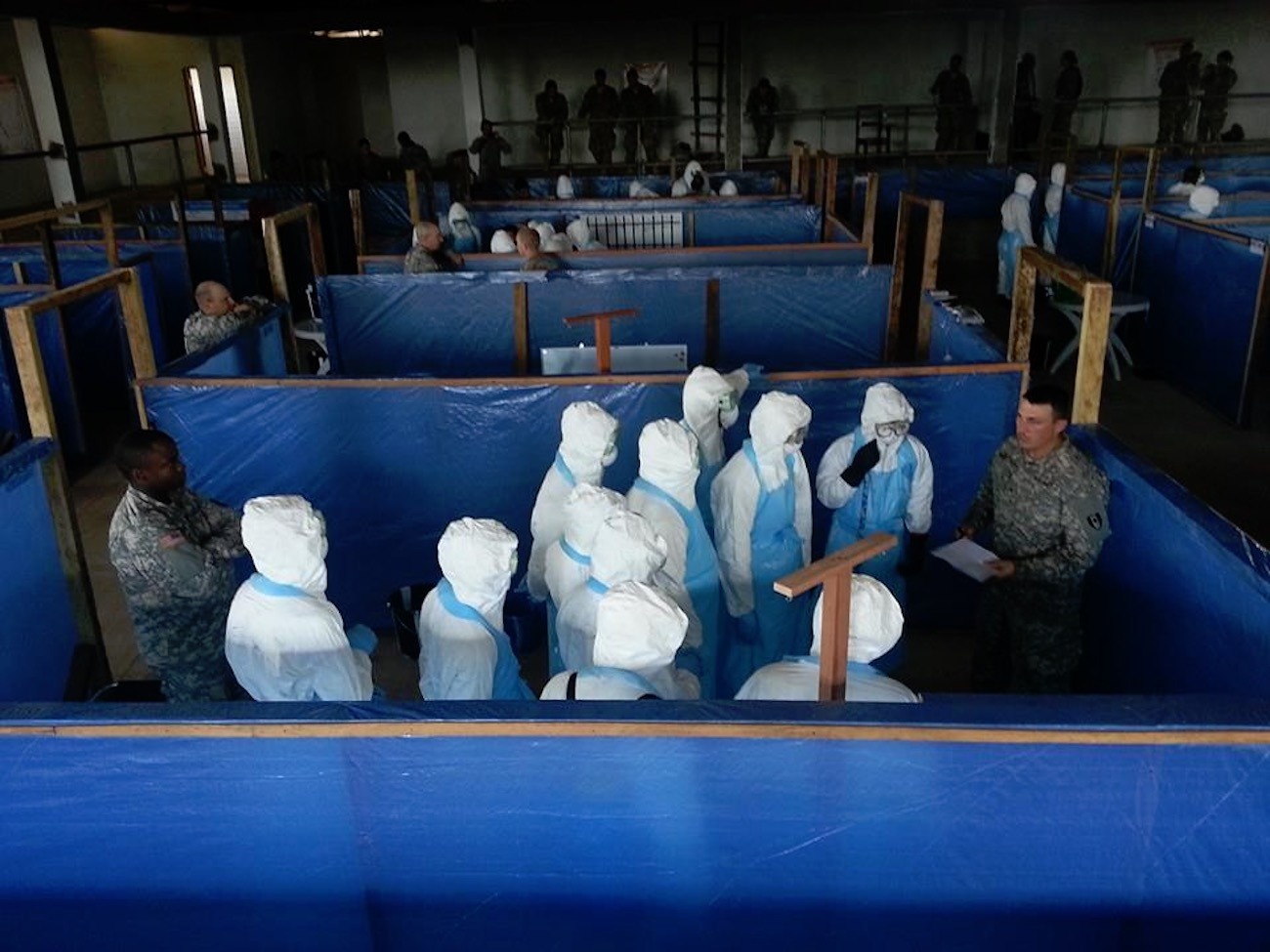
CTG mobilised a rapid-response Emergency Medical Team and provided on the-ground support to the first US-led Ebola Treatment Unit in Liberia
To get an idea of the kind of impact that our ‘third party contractors’ are having on communities, take a look at our ‘Stories From The Field’. Here you’ll read the inspirational stories of CTG staff and then work that they do, people such as Mohammad Gul “Ghafoorzai”, a Food Aid Monitor working in Afghanistan; and David Womble, Senior Governance and Stabilisation Programme Advisor in Somalia.
So, how do you rate us? Are we humanitarians? The concept of the ‘third party contractor’ is often met with disdain by many humanitarians working in the field. But you have asked us to help and we are on the ground with you.
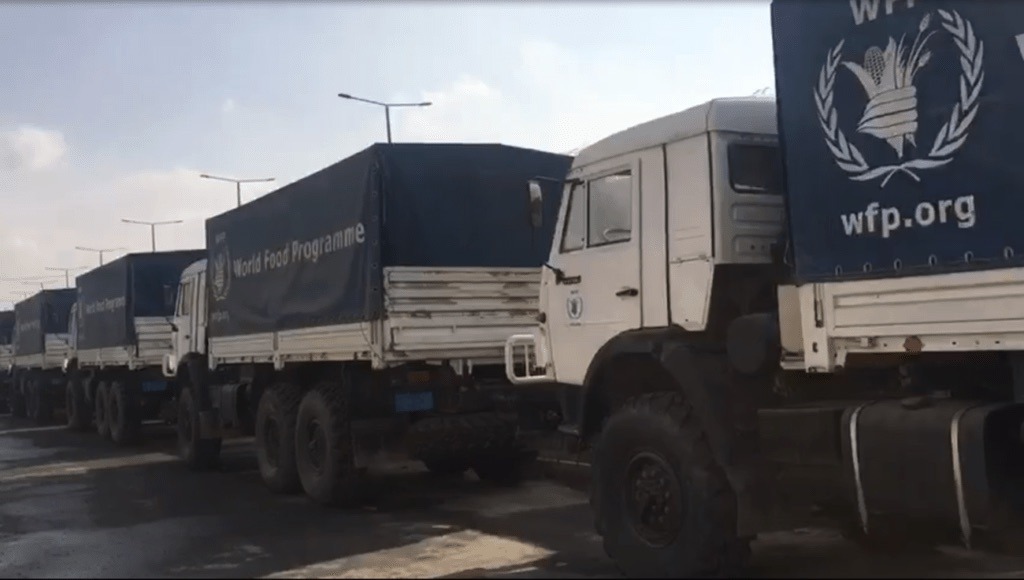
The United Nations runs a competitive selection process through which they ask for blind responses to public proposal requests to help them implement their projects. These competitive processes see the ‘third party contractor’ submitting a technically and financially compliant solution to their problem. This process normally includes submitting evidence of local legal entity in the country of operation, how local labour practices will be met, an evaluation of meeting local living wages, submission of annual financial audits and the duty of care procedures for our staff in the field.
Evaluated by a selection committee, who we have no influence over, against other organisations operating in our area of specialisation we may be selected. On many circumstances, I have seen us being selected over a non-governmental organisation (NGO). How can a for-profit business possibly compete against an NGO?
All UN requests for proposals have a balanced scorecard which we are evaluated against with a percentage requirement for technical and a percentage for financial propositions.
I’m still wondering – what you think? Are we an implementing partner or not? Some of our clients talk about us as their ‘partner’ but others prefer the slightly dismissive term of the ‘third party contractor’, even though without us they would not have got such project outcomes and possibly wouldn’t have implemented the project at all – resulting in thousands of people not receiving vaccinations or medical attention or food or the opportunity to be educated.
Are we delivering? All our contracts are performance based, where we have deliverables which have to be met and reported on monthly in order to get paid. We also fund the projects, sometimes for many months until we are paid. We take the financial risk on our performance – only being paid once we have hired the staff to work on a project – which could see payrolls from $500,000 to over $1million. Given that we work in sanctioned countries such as Sudan and Syria, it doesn’t make us attractive to investors or the banking community! We continue to provide cost-effective and transparent solutions in helping to implement important humanitarian projects in conflict-affected countries.
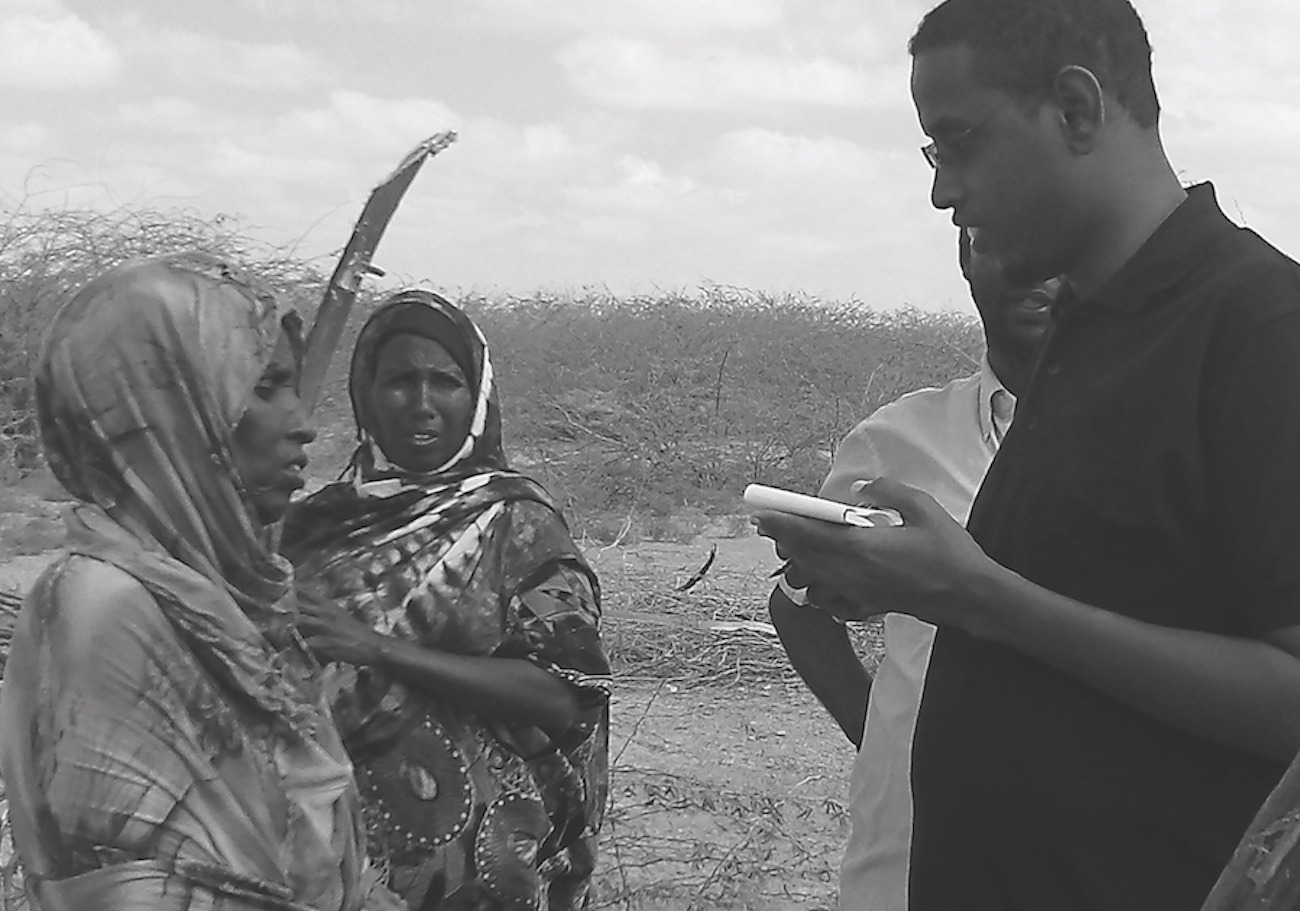
On a yearly basis, CTG monitors and evaluates the feeding and food distribution for 1.9 million Somalis, who receive food or food tokens.
At CTG we have taken the approach of being part of the Force for Good. As James Veysey, CTG COO, highlighted in his blog, the private sector helps to generate government income. 91% of CTG’s revenue stays in the local economy as we create job opportunities for thousands of national staff, having a direct impact on Sustainable Development Goal 8 – good work and economic prosperity. In fact, CTG has integrated the 2030 Agenda For Sustainable Development into its daily business operations, strategy and brand and makes its social impact an important part of daily business.
In 2017, we launched our #FemaleFirst campaign which pledges to create job opportunities for women in conflict-affected countries with a goal of 30% of all project-related roles being represented by women by 2030. On our way to reaching our Female First targets, you can read about the challenges faced by some of the amazing women working for CTG Rania Kharma, a Field Operations Manager of a Community Stabilisation Project in Libya and Lamees Hasan Al-Hamdi a Human Rights Monitor in Yemen.
91% of CTG’s revenue stays in the local economy as we create job opportunities for thousands of national staff
Female First Champions in CTG’s field offices have initiated outreach and capacity-building campaigns to encourage more women into the workplace. These are countries where the unconscious bias for women in the workplace is out of control, where gender-based violence is considered acceptable to many, and children are recruited as soldiers or to work in the ‘rag-trade’ rather than being given a decent education.
I spend a considerable amount of my spare time promoting the agenda for sustainable development through my role as Board Member of the United Nations Global Compact in the UAE and as Chair of the United Nations Women’s Empowerment principles. You can read more about CTGs social responsibility approach in our balancing the gender scales in humanitarian projects report.
I believe strongly that CTG proves that ethical and conscientious ‘third party contractors’ such as ourselves can have an impact on the global agenda.
Am I any less of a humanitarian than someone who works for the United Nations or an NGO? How do I differ?

